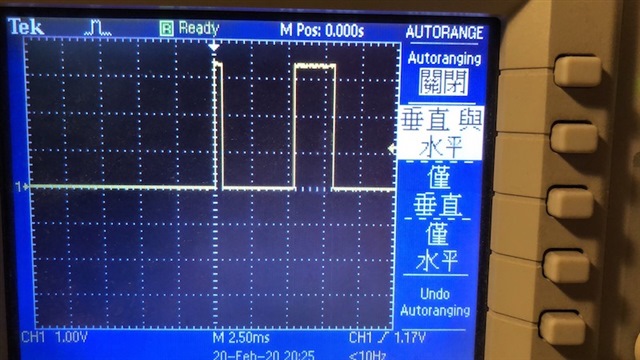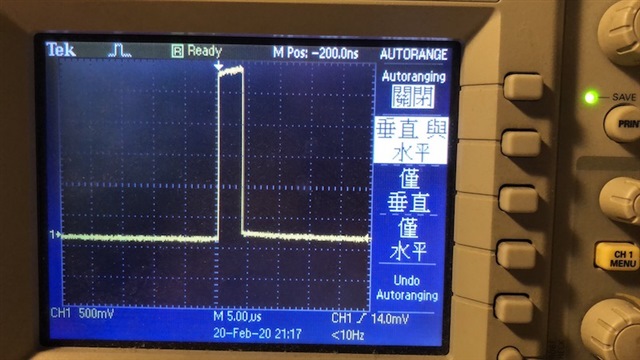Hello,
I have an external chip in SPI slave mode and connected to 52840 through SPI interface. When data is ready it will notify 52840 through its dedicated IRQ pin (connected to one of GPIO of 52840), and then 52840 will read the data back through SPI bus., using SPIM driver.
the software is composed like this:
1. Setup GPIOTE to sense the GPIO/IRQ pin (low to high)
2. in GPIOTE interrupt handler, use app_scheduler to transfer execution to main context.
3. in main context, use SPIM driver to read data back to 52840's RAM.
the above process can run fine and the data read back are all correct. However, a problem is Step 2. has a large delay about 2ms. that is, after app_sched_event_put is called, the data event handler is executed only after 2ms. My application can not tolerant such big delay.
Is this delay normal? if not, what could be the possible reason why it happen?
Major code snippet:
Main.c
int main(void)
{
bool erase_bonds;
// Initialize.
log_init();
NRF_LOG_INFO("Starting nrf52840...");
timers_init();
buttons_leds_init(&erase_bonds);
power_management_init();
//init event scheduler;
APP_SCHED_INIT(SCHED_MAX_EVENT_DATA_SIZE, SCHED_QUEUE_SIZE);
// Enter main loop.
for (;;)
{
//handle usbd event sperately;
//app_usbd_event_queue_process();
app_sched_execute();
if (NRF_LOG_PROCESS() == false)
{
idle_state_handle();
//power_manage();
}
}
}
GPIOTE init:
{
...
ret_code_t err_code;
UNUSED_VARIABLE(err_code);
if(!nrf_drv_gpiote_is_init())
{
err_code = nrf_drv_gpiote_init();
APP_ERROR_CHECK(err_code);
}
nrf_drv_gpiote_in_config_t in_config = GPIOTE_CONFIG_IN_SENSE_LOTOHI(true);
//in_config.pull = NRF_GPIO_PIN_PULLUP;
UNUSED_VARIABLE(in_config);
err_code = nrf_drv_gpiote_in_init(EXT_DATA_IRQ_PIN, &in_config, gpiote_irq_handler);
//APP_ERROR_CHECK(err_code);
nrf_drv_gpiote_in_event_enable(EXT_DATA_IRQ_PIN, true);
...
}
GPIO interrupt handler
void gpiote_irq_handler(nrf_drv_gpiote_pin_t pin, nrf_gpiote_polarity_t action)
{
if (pin == EXT_DATA_IRQ_PIN) {
ex_data_event_t evt;
//fill in data evt;
....
app_sched_event_put(&evt, sizeof(evt), data_event_dispatch);
}
}
app scheduler event hander:
void data_event_dispatch(void *p_event_data, uint16_t event_size) {
ex_data_event_t* p_evt = (ex_data_event_t*)p_event_data;
switch (p_evt->pa_ops) {
case DATA_OPS_TYPE_EXT_PA_ON:
//NRF_LOG_DEBUG("[ext]\tswitch PA on...");
break;
}
...
}




